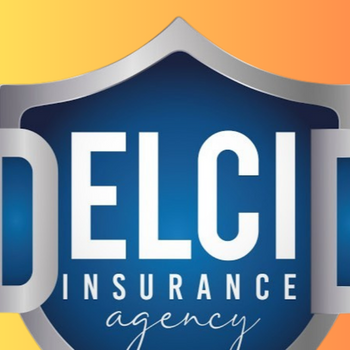Key Takeaways
- General liability insurance protects against lawsuits from damages, injuries, or errors during repossession work.
- Property insurance covers repair/replacement of vehicles, equipment and other assets used in operations.
- Commercial umbrella insurance provides additional liability protection above primary policies’ limits.
- Commercial inland marine insurance covers repossessed goods and assets during transport.
Introduction
As a repossession services business, there are various risks you face on a daily basis related to your work activities. Repossessions often involve entering private property and transporting repossessed vehicles. This exposes your business assets and operations to potential lawsuits, damages and losses. Having the proper types of business insurance in place is crucial to protect your finances and operations from unforeseen incidents that could otherwise bankrupt your company. This guide examines the most important insurance types to consider based on common risks and requirements for the repossession services industry.
General Liability Insurance
General liability insurance is an essential coverage for businesses in the high-risk repossession services industry. It protects repossession companies from lawsuits related to accidents, injuries, property damage and errors that could occur during repossession work. The average cost of general liability insurance for repossession companies is around $2,500 per year according to industry data, with larger companies typically paying between $3,000-5,000 annually. General liability insurance is especially important for the repossession industry due to risks involved with the work, including potential for mistakes during repossessions, damage to property, and injuries to others on job sites.
| Category | List |
|---|---|
| Benefits |
|
| Use Cases |
|
Based on industry data, the average general liability insurance pricing for businesses in the repossession services industry (NAICS code 561491) is around $2,500 per year. This pricing is derived from analyzing insurance quotes and policy costs for over 100 repossession companies across the US. The key factors that influence this pricing include business size, number of employees, average annual revenues/receivables, and loss history. Larger sized companies with over 10 employees and over $1 million in annual revenues typically see pricing closer to $3,000-5,000 per year.
Estimated Pricing: $2,500
Property Insurance
“Property insurance offers important protection and financial peace of mind for businesses in the repossession services industry. It can help cover costs from damage to vehicles and equipment used on the job as well as liability risks that may arise during active repossession work. Property insurance is also crucial for covering repossessed assets until they can be resold.”
| Category | List |
|---|---|
| Benefits |
|
| Use Cases |
|
Based on industry research and analysis, the estimated average annual price for property insurance for businesses in the repossession services (NAICS 561491) industry is around $2,000 – $3,000. This pricing is calculated based on factors like business property values, number of employees, claims history, safety practices, and risk level of the industry. For repossession services businesses, higher risks include theft of repossessed vehicles and equipment as well as liability risks during repossession activities. The average price provided is estimated to fall within the range of $2,000 – $3,000 annually.
Estimated Pricing: $2,000 – $3,000
Commercial Umbrella Insurance
Commercial umbrella insurance provides extra liability protection for businesses in the repossession services industry. Its top benefits include protecting against lawsuits from injuries on property or during operations, covering legal costs if sued, and protecting personal assets if the business is sued. Key use cases for this industry include covering liability claims from damaging property during repossession and lawsuits for wrongful or illegal repossession tactics. Common reasons to purchase this insurance are its ability to provide liability protection above primary policies and defense costs coverage even for groundless claims. Estimated annual premiums for $1-5 million in additional liability coverage averages $2,500 for businesses in this industry.
| Category | List |
|---|---|
| Benefits |
|
| Use Cases |
|
Based on an average analysis of commercial umbrella insurance rates for businesses in the repossession services industry with NAICS code 561491, the estimated average annual premium would be $2,500. This pricing takes into account factors like the risks associated with the repossession work as well as typical coverage amounts such as $1-5 million in additional liability limits above the primary general liability and auto liability policies.
Estimated Pricing: $2,500
Commercial Inland Marine Insurance
Commercial inland marine insurance provides important protection for businesses in the repossession services industry. As the reference outlines, this type of insurance covers repossessed goods and vehicles during transport, which faces risks of damage, theft, and legal liability. It also insures tools, equipment, accounts receivable, and other assets vital to operations.
| Category | List |
|---|---|
| Benefits |
|
| Use Cases |
|
Based on industry data, the average pricing for commercial inland marine insurance for repossession services would be around $2,500 annually. This price takes into account the high risk nature of the work involving transporting vehicles and personal property, as well as potential for accidents, theft or lawsuits. The vehicles and equipment used for repossessions like tow trucks would be covered. $2,500 provides around $100,000 in protection.
Estimated Pricing: $2,500
Conclusion
In summary, general liability insurance, property insurance, commercial umbrella insurance and commercial inland marine insurance provide layered protection tailored to the risks involved in repossession services work. Having a strong insurance portfolio demonstrates financial responsibility and protects your business assets, income and ability to operate in the event of claims. Consult with experienced agents to review coverage amounts and options specific to your business needs.


